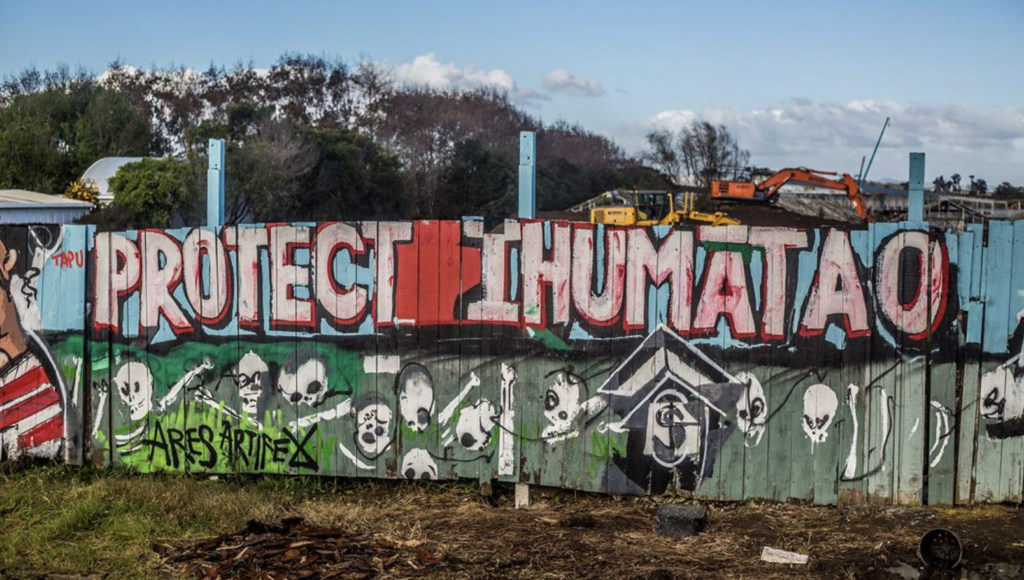- Vision Mātauranga
Research Programme
- Pania Newton
Makaurau Marae Maori Trust - View the full team
Project Lead
-
Budget
$150,000 -
Duration
July 2022 – June 2024
-
Completed project
Toi Tu Ihumātao
“Ki te kahore he whakakitenga ka ngaro te iwi”
Many studies show the resilience of indigenous peoples to environmental and climatic change. For Māori, adaptation is deep-coded in our culture – in our migration from tropical to temperate whenua, in our survival of the mini ice-age of the 15th century and in our endurance through growing ecological crises, beginning with colonisation, that now include climate disasters.

For Ihumātao – continuously occupied for 800 years – settler development, land confiscations and urbanisation have grossly abused our takiwā and harmed our lifeways. The papakāinga in its Ōruarangi awa catchment is engulfed by the Auckland Metropolis, adjacent to the massive emissions sources of the Auckland International Airport, the Mangere Waste-Water Treatment Plant and the Montgomerie Industrial Zone. We are acutely aware of erosion at our urupā due to stormwater discharge; the pollution of our moana and local atmosphere; and the pressures of urban living.
Climate change brings new hazards. Sea-level rise will seriously impact our papakāinga. Extreme weather, rising temperatures, floods and drought, will also damage Ōruarangi awa. Our resilient whanau will meet these challenges by maintaining kaitiakitanga and rangatiratanga. With collective action and mutual support, in this research we will create initiatives to mitigate and adapt to what is coming. We have done this before and we will do it again!
This on-whenua research project asked: “What are our unique expressions of resilience, adaptation and kaitiakitanga in response to climate change, particularly within our stressful urban setting?”
Through this research, we sought to:
- Develop our ancient and modern practices as sources of resilience
- Rebuild and enhance our knowledge of, connection to and care of te taiao
- Position ourselves to respond as kaitiaki to the threats of climate change
- Develop papakāinga capabilities for adapting, in mana-enhancing ways
- Identify, lead and undertake community projects as evidence-based action research
- Determine initiatives to address the growing climate challenges we face.
Listen to the Ihumātao whanau kōrero about this research and their whenua on season two of Te Kōmata o te Tonga podcast, Ko Papa Ko Rangi: Ahi Kaa.
-
Pania Newton
Makaurau Marae Maori Trust -
Stacey Bishop
Te Ahiwaru Iwi Authority -
Moana Waa
Te Ahiwaru Iwi Authority -
Tim McCreanor
Te Ropu Whariki – Whariki Research Group -
Helen Moewaka Barnes
Te Ropu Whariki – Whariki Research Group